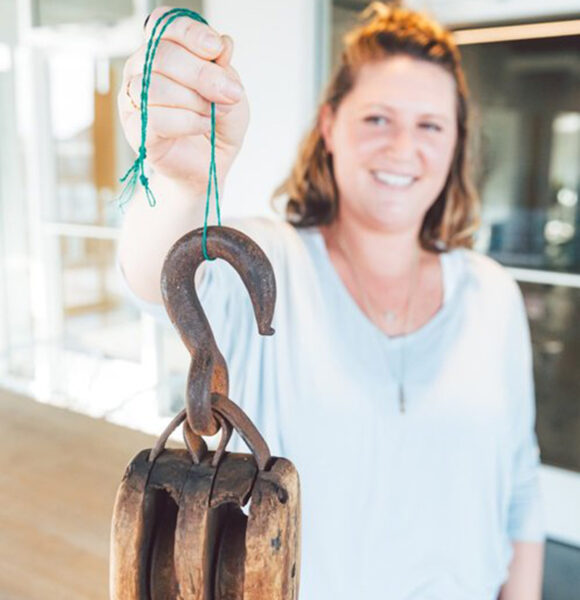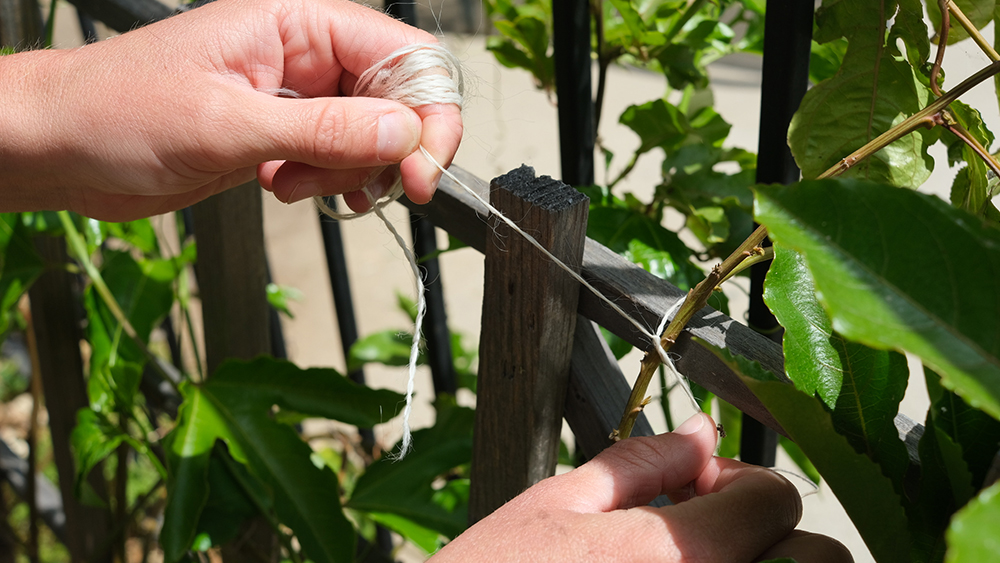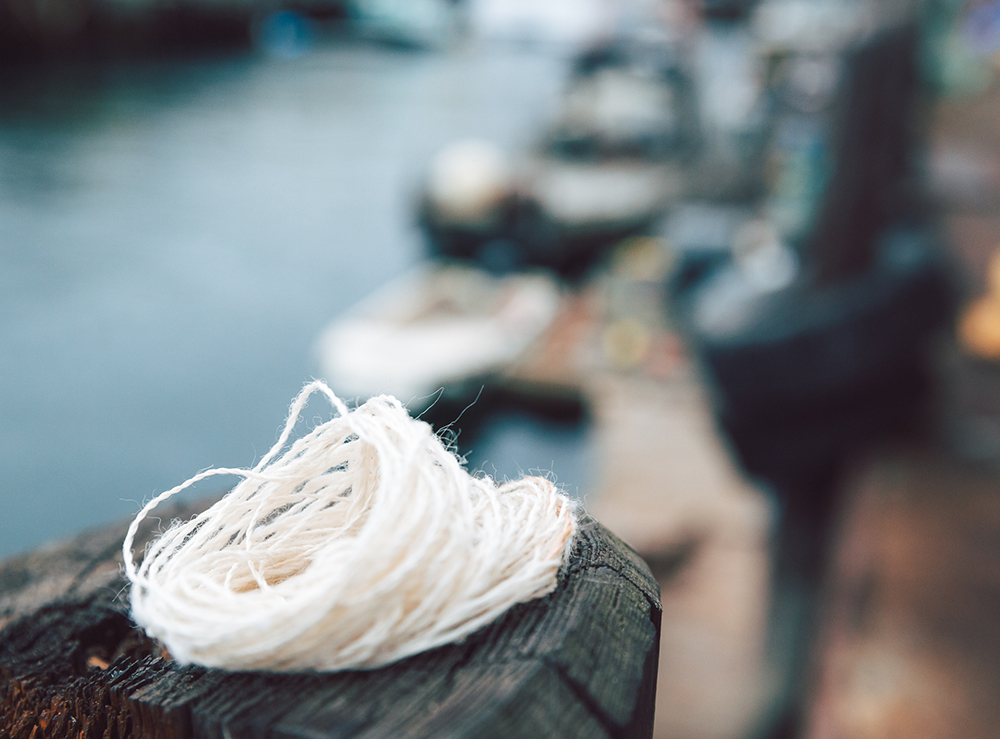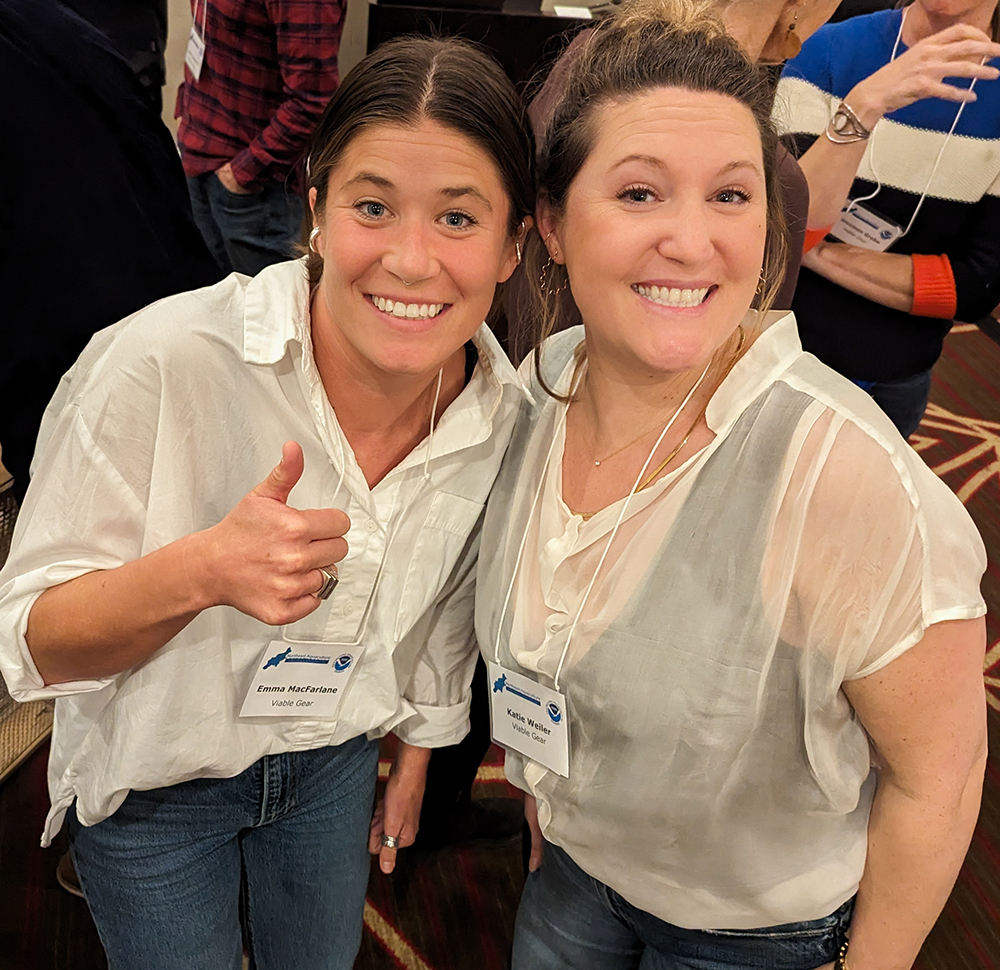
When Katie Weiler returned to coastal Maine in 2019, she noticed something about the familiar islands she’d grown up on: They were littered in far more plastic than she remembered from her younger years.
“A big issue is ‘ghost gear’—plastics from fishing and aquaculture that get lost or abandoned in the ocean,” explained Katie. “Plus, there’s a lot of other single-use plastic ending up in the ocean.”
Plastic pollution is a problem that has a significant effect both globally and on coastal regions of Northern New England. It’s not just unsightly litter—ghost gear can cause entanglement for sea creatures, injuring and even killing fish, whales, sharks, and turtles through suffocation or exhaustion. Plus, micro and nano plastic pieces infiltrate the environment at every level, eventually ending up in the seafood that appears on your dinner table. “Nano plastics are in the food system—if you’re eating food, you can’t avoid it,” said Katie.
A problem solver by nature and training, Katie considered different ways of tackling the problem of plastic on a regional scale while finding solutions for those who rely on plastics to make a living out on the water. She has a business background and a strong understanding of materials—the perfect combination for finding a scalable solution to a local and global problem. She established Viable Gear in 2021 and turned to seaweed as a possible answer to the challenges of ocean bound plastics.
“Nano plastics are in the food system—if you’re eating food, you can’t avoid it.”
“The Endangered Species Act has come down hard on the lobster industry because of entanglement danger to Right Whales. They are cracking down on an industry without viable solutions to help risk reduction,” Katie said. “There are companies making ropeless traps, but they’re very expensive for lobstermen to switch to.”
Seaweed offers a natural fiber alternative to plastic rope—but there are challenges. “It’s hard to make a high tensile strength rope that will last a long time and eventually break down.” Katie decided to start with the building blocks of a bait bag: twine, which is how SeaTwine was born. This seaweed-based bioplastic is scheduled to be commercially available in late 2025, with the goal of replacing some of the plastic rope used in fishing and farming industries.
While ocean pollution was the impetus for Katie’s drive to find ways to replace plastic, she soon learned there are more applications for SeaTwine. “Have you ever been in a tomato greenhouse? It’s all poly twine.” This realization opened up another, even broader market for Viable Gear—tailoring sustainable products for use in agriculture to get petroleum-based plastics out of the equation and mitigate more microplastics ending up in soils.


The company potentially has a much broader reach beyond twine. Turning their material into a pellet to use for injection molding technology, Katie hopes to expand their product offerings to different kinds of products useful in aquaculture, fishing, agriculture, and beyond.
Emma MacFarlane, Chief Operations Officer at Viable Gear, said, “This is where we’re starting, but we have plans to make a number of products to replace traditional petroleum-based plastic. Ocean farmers to lobstermen to land farmers, all of them use cable ties. They use them for one growing season, or even for just a day, and they are looking to replace those zip ties with more sustainable materials that have a life span duration that better links up with their actual use.”
A local company with the goal of solving a global problem? Sounds like a Mascoma Bank customer.
“I’ve always been a ‘bank local’ person,” Katie says. “I learned that if I wanted Viable Gear to become a B Corporation someday, I’d need to work with a bank that was a B Corp. Mascoma was the most local to me, and when I reached out, they went above and beyond from the get-go.”
On Mascoma’s part, a start-up business with the potential to effect far-reaching, sustainable change is exactly the kind of business relationship that illustrates a commitment to banking for the greater good.
“Katie and her team are doing the kind of work the world needs right now,” says Andrew Cook, Senior Vice President, Maine Market Manager. “They saw a need, and the solution to fill that need, while developed in Maine, has the potential to have a lasting impact around the world.”
“The Mascoma team makes it very easy to do business,” Katie says. “I know I can email Amberlynn with a question—whether it’s about clearing a certain check size or wiring funds to Sweden—and she’s going to do everything she can to help me immediately.”
It takes vision and determination to turn a walk on a beach into a process that creates new products to benefit the health of humans, industries, and the planet itself. Mascoma Bank is proud to be part of that vision and Viable Gear’s quest for solutions.

Emma MacFarlane and Katie Weiler